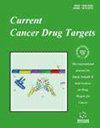L-赖氨酸通过诱导 ROS 依赖性自噬增强多柔比星对乳腺癌的抗癌效果
IF 3.5
4区 医学
Q3 ONCOLOGY
引用次数: 0
摘要
背景::多柔比星(DOX)是一种化疗药物,广泛用于癌症治疗,尤其是三阴性乳腺癌(TNBC)患者。然而,DOX 诱导的细胞保护自噬作用限制了其细胞毒性作用,并诱导患者产生耐药性。因此,找到一种新的方法对于提高这种药物治疗癌症的效果至关重要。研究目的本研究旨在探讨 L-赖氨酸可能通过调节 TNBC 细胞系的自噬作用对 DOX 细胞毒性的影响。方法我们使用了两种具有不同程度自噬活性的 TNBC 细胞系 MDA-MB-231 和 MDA-MB-468。通过 MTT 检测法评估了单独或联合使用 L-赖氨酸治疗后的细胞存活率。活性氧(ROS)、一氧化氮(NO)浓度和精氨酸酶活性分别通过流式细胞分析法、格里斯反应和精氨酸酶活性检测试剂盒进行评估。实时 PCR 和 Western 印迹分析用于评估 L-赖氨酸对自噬相关基因和蛋白表达的影响。采用流式细胞分析法进行细胞周期分析和细胞凋亡检测。结果显示所得数据表明,24 mM 和 32 mM 两种浓度的 L-赖氨酸都能通过诱导 ROS 和 NO 的产生,增加自噬通量并增强 DOX 的细胞毒性,尤其是在 MDA-MB-231 中,其自噬活性高于 MDA-MB-468。此外,L-赖氨酸还能诱导 G2/M 停滞的自噬细胞死亡,而未观察到明显的细胞凋亡变化。结论这些研究结果表明,L-赖氨酸可通过自噬调节增加 DOX 的细胞毒性。因此,L-赖氨酸与 DOX 联用可促进新型癌症辅助疗法的开发。本文章由计算机程序翻译,如有差异,请以英文原文为准。
L-lysine Increases the Anticancer Effect of Doxorubicin in Breast Cancer by Inducing ROS-Dependent Autophagy
Background:: Doxorubicin (DOX) is a chemotherapy drug that is widely used in cancer therapy, especially in Triple-Negative Breast Cancer (TNBC) patients. Nevertheless, cytoprotective autophagy induction by DOX limits its cytotoxic effect and drug resistance induction in patients. Therefore, finding a new way is essential for increasing the effectiveness of this drug for cancer treatment. Objective:: This study aimed to investigate the effect of L-lysine on DOX cytotoxicity, probably through autophagy modulation in TNBC cell lines. Methods:: We used two TNBC cell lines, MDA-MB-231 and MDA-MB-468, with various levels of autophagy activity. Cell viability after treatment with L-lysine alone and in combination therapy was evaluated by MTT assay. Reactive Oxygen Species (ROS), nitric oxide (NO) concentration, and arginase activity were assessed using flow cytometric analysis, Griess reaction, and arginase activity assay kit, respectively. Real-time PCR and western blot analysis were used to evaluate the L-lysine effect on the autophagy-related genes and protein expression. Cell cycle profile and apoptotic assay were performed using flow cytometric analysis. Results:: The obtained data indicated that L-lysine in both concentrations of 24 and 32 mM increased the autophagy flux and enhanced the DOX cytotoxicity, especially in MDA-MB-231, which demonstrated higher autophagy activity than MDA-MB-468, by inducing ROS and NO production. Furthermore, L-lysine induced G2/M arrest autophagy cell death, while significant apoptotic changes were not observed. Conclusion:: These findings suggest that L-lysine can increase DOX cytotoxicity through autophagy modulation. Thus, L-lysine, in combination with DOX, may facilitate the development of novel adjunct therapy for cancer.
求助全文
通过发布文献求助,成功后即可免费获取论文全文。
去求助
来源期刊

Current cancer drug targets
医学-肿瘤学
CiteScore
5.40
自引率
0.00%
发文量
105
审稿时长
1 months
期刊介绍:
Current Cancer Drug Targets aims to cover all the latest and outstanding developments on the medicinal chemistry, pharmacology, molecular biology, genomics and biochemistry of contemporary molecular drug targets involved in cancer, e.g. disease specific proteins, receptors, enzymes and genes.
Current Cancer Drug Targets publishes original research articles, letters, reviews / mini-reviews, drug clinical trial studies and guest edited thematic issues written by leaders in the field covering a range of current topics on drug targets involved in cancer.
As the discovery, identification, characterization and validation of novel human drug targets for anti-cancer drug discovery continues to grow; this journal has become essential reading for all pharmaceutical scientists involved in drug discovery and development.
 求助内容:
求助内容: 应助结果提醒方式:
应助结果提醒方式:


